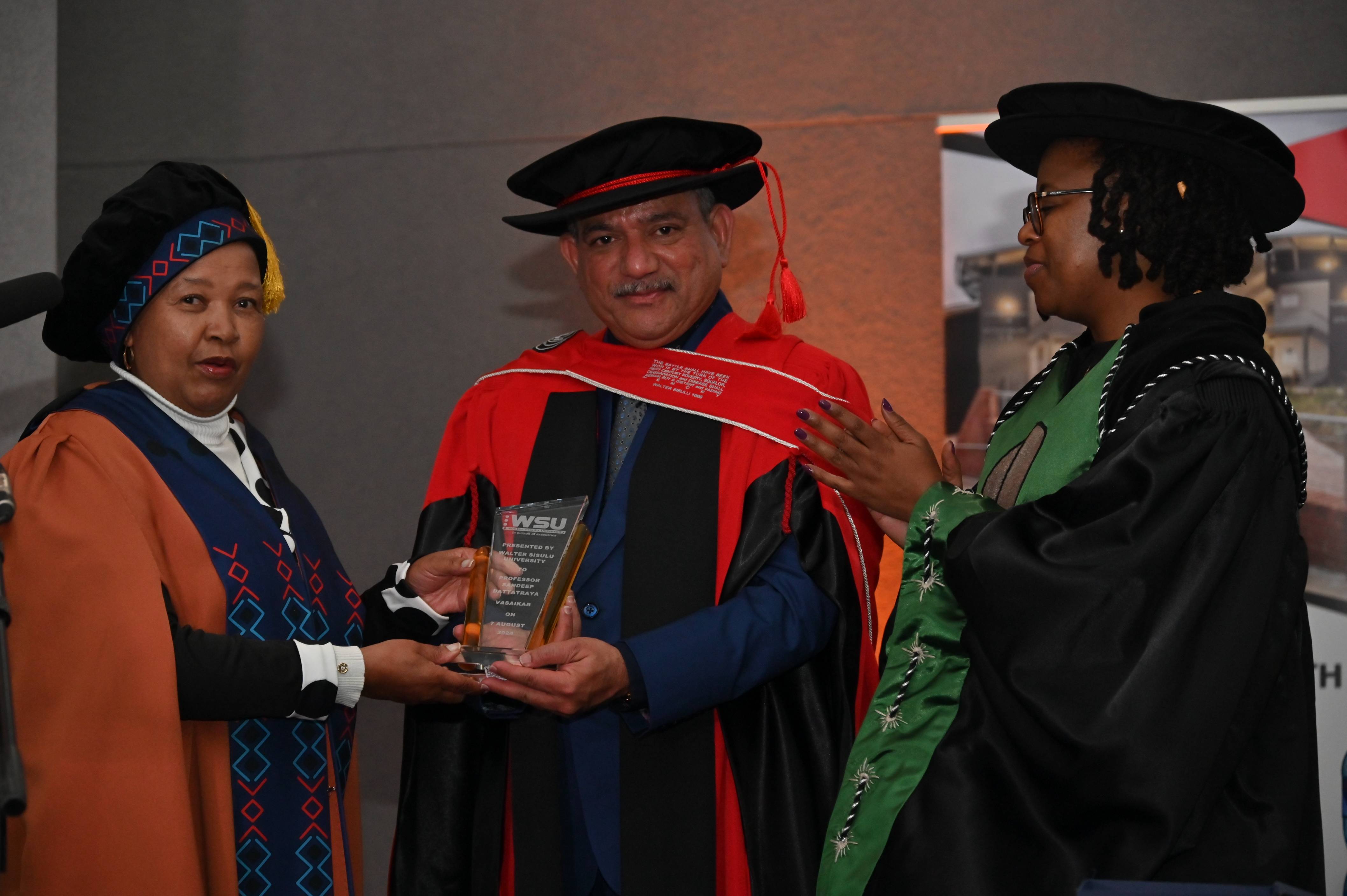NAVIGATING ANTIMICROBIAL RESISTANCE: PROF. VASAIKAR'S RESEARCH UNVEILS ALARMING AMR TRENDS IN MTHATHA
A 3-decade-long career in Medical Microbiology and Parasitology research has led to the long-awaited Inaugural Lecture of Professor Sandeep Vasaikar from the Faculty of Medicine and Health Sciences, held at NMD Auditorium in August.
Speaking under the theme: "Navigating the Antimicrobial Resistance (AMR) Landscape: Strategies and Challenges in Addressing Drivers of AMR” Vasaikar delved into the critical issues surrounding AMR, including the underlying factors driving the development of resistance, such as the misuse of antibiotics by doctors and other health care workers, and the challenges faced in combating this global health crisis.
“Since the golden age of natural antibiotics that followed the discovery of penicillin in 1928, the over-reliance and mainstream use of antibiotics has been met with the increasing emergence of strains of drug-resistant bacteria,” said Vasaikar.
Examples of these are ESKAPE pathogens, Carbapenem-resistant Enterobacterales (CRE) and Multidrug-resistant (MDR) tuberculosis causing Hospital-acquired infections (HAI).
The researcher presented his life-long research which revealed concerning findings about AMR, highlighting the rising resistance of bacteria to antibiotics in different settings locally and globally.
An integral part of his research, focusing on Mthatha, highlighted the increasing concern of bacteria becoming resistant to routinely used antibiotics in various environments such as food, water, tuberculosis, and its possible transmission in patients. This will require admission in hospital because these organisms are MDR.
“We investigated whether antibiotic-resistant bacteria, specifically A. baumannii, were present in places like abattoirs and aquatic environments (such as fish) around Mthatha. We discovered 54.8% of the A. baumannii in these samples were resistant to several commonly used antibiotics used to treat infections caused by these bacteria.”
He added, “These include antibiotics like piperacillin/tazobactam, ceftazidime, ciprofloxacin, amikacin, imipenem, and meropenem, which also showed a high level of resistance to other antibiotics overall.”
According to the researcher, this suggests that abattoirs and aquatic environments might help spread these antibiotic-resistant strains in both, the community and hospitals.
“We also found that another bacterium, P. aeruginosa, was multidrug-resistant in 55.6% of the samples from abattoirs and aquatic environments, meaning it was resistant to many important antimicrobials used to treat it. Monitoring these drug-resistant bacteria is crucial for public health safety.”
The professor explained that local research has tested a new method using special Photoinactivation using light-activated chemicals, Protoporphyrin IX and Methylene Blue, to fight off the tough bacteria called Acinetobacter baumannii.
Vasaikar said this approach has shown promise in reducing the bacteria's resistance to treatment.
In his efforts, Vasaikar is currently collaborating with the Vaccine and Infections Diseases Analytics (VIDA) in the development of a vaccine to combat these challenges in selected hospitals such as Charlotte Maxeke Johannesburg Academic Hospital (CMJAH), Chris Hani Baragwanath Hospital and Nelson Mandela Academic Hospital Neonatal (NMAH) Neonatal units.
“Through combined efforts in medical microbiology research, mentorship, and collaborative partnerships, we can overcome the challenges of antimicrobial resistance in multidrug organisms, paving the way for a sustainable and healthy future for all,” said Vasaikar.
His research is informed by challenges addressed in Sustainable Development Goals (SDG) in South Africa, mainly SDG’s 3,4,6 which stipulate good health and well-being, quality education, and clean water and sanitation for all South Africans.
By Ongezwa Sigodi

